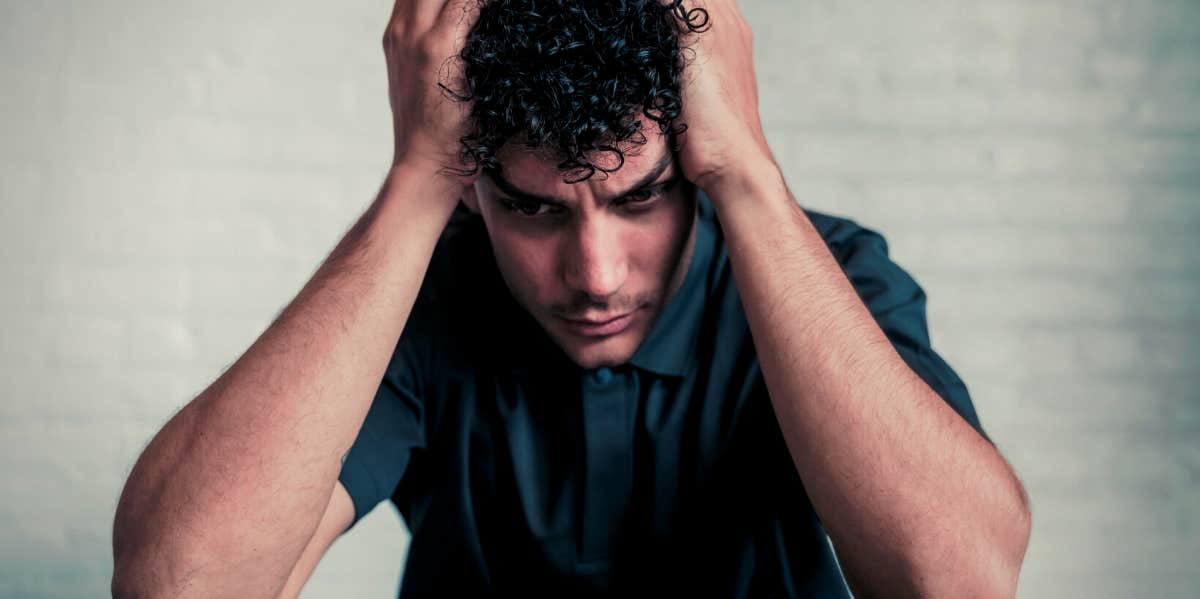Homophobic People Are Actually More Likely To Be Gay, According To Research
It may help to explain the rise in anti-gay bullying and hate crimes.
 Pexels via Canva
Pexels via Canva The world is a violent place. That is a truth that can be difficult to swallow, but the evidence is overwhelming. What's worse is that this violence seems to attract those who need our help the most, like children and the LGBTQ+ community.
LGBT people are nine times more likely to be victims of violent hate crimes. Numerous assaults, harassments, and even mass shootings — like the 2022 Club Q shooting and the 2016 Pulse massacre — are just a few pieces of evidence.
One can't help but wonder why anyone would do something so terrible and inhumane. When people found out that Omar Mateen, the gunman of the 2016 massacre, was a regular at the Pulse nightclub and used gay dating apps, it left us with more questions than actual answers.
This poses the question: Are homophobic people actually homosexuals themselves?
What is internalized homophobia?
Internalized homophobia is the concept of having negative beliefs, feelings, and attitudes toward one's own homosexuality. This can arise from societal stigma, discrimination against LGBTQ+ individuals, or growing up in a household that disapproves of that lifestyle.
A person who suffers from internalized homophobia may exhibit shame, guilt, self-hatred, and even denial. They will fiercely attempt to suppress or deny their sexual orientation because they believe what they are feeling is bad or wrong.
Are homophobic people secretly gay?
The short answer is no. The idea that all homophobic people are secretly gay is a myth and has been debunked by research.
Homophobia can stem from a variety of factors, such as cultural or religious beliefs, lack of exposure to diversity, or personal insecurities. There isn't enough counter-research to use this as a reliable indicator of one's sexual orientation.
However, researchers at the University of Rochester in New York, the University of California, and the University of Essex may bring some light to the theory after the Pulse shooting tragedy. The series of studies determined that people with homophobic tendencies are more likely to be gay.
After examining four different studies from the U.S. and Germany about homophobia as an "external manifestation of sexual desire," researchers discovered that many homophobes who claim to be straight may actually be gay themselves.
In psychological tests, those who claim to be straight tend to show a strong attraction to a person of the same sex. However, external factors such as growing up in super-conservative households that forbid such desires may contribute to these findings.
"Those people who have such discrepancies, who have really a split between their unconscious attraction and what they consciously say about themselves, are more likely to come from authoritarian homes," said Richard Ryan, a psychology professor at the University of Rochester.
University of Essex professor Netta Weinstein believes that these homophobes feel threatened by gays and lesbians because they remind them of their own often forbidden desires.
In the case of Mateen, this is a possible answer to his 2016 rampage that resulted in the death of 49 people. But doesn't give us a solid blanket statement about homophobes being gay themselves. Only homophobes could harbor some same-sex attraction.
According to a frequent clubgoer, Ty Smith, Mateen "would go over in the corner and sit and drink by himself, and other times he would get so drunk he was loud and belligerent." Smith also claimed that Mateen had talked about his father a few times and that he had a wife and kids.
While there isn't any concrete proof that homophobic people who go on these violent benders are gay themselves, according to Ryan:
"People who have homophobic attitudes, who are more prejudiced or discriminatory against gay people, are themselves more likely to have a discrepancy between their unconscious attractions to same-sex partners than what they are aware of."
The Orlando and Colorado shootings aren't the end of the violence targeted at the LGBTQ+ community and, unfortunately, won't be the last instances. Hopefully, we as a society can have open more conversations about the acceptance of the LGBT community.
Caithlin Pena is an editor and former contributor for YourTango. Her work has been featured on Thought Catalog, Huffington Post, Yahoo, Psych Central, and BRIDES.

